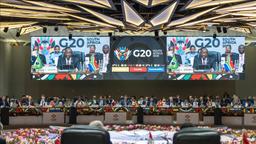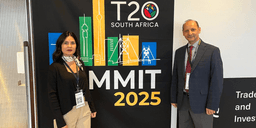
Students from the Harvard Kennedy School paying a visit to TEPAV learned about the recent developments in the Turkish and the world economies from Süreyya Serdengeçti, TEPAV's Stability Institute Director.
ANKARA - A delegation composed of Turkish and foreign students from the Harvard Kennedy School paid a visit to TEPAV. In the context of the program organized for the delegation on March 16, 2011, Süreyya Serdengeçti, TEPAV Stability Institute Director, delivered a speech on the Turkish and the world economy.
In his opening speech at, Serdengeçti assessed the state of affairs in the Turkish and the world economies in the aftermath of the 2008 crisis. Stressing that the crisis affected all countries and the problems caused by it had not been overcome completely, he said that the world was going through a process in which countries and politicians were blaming others for the problems with which they were faced. He emphasized that the problems emerging after the crisis went beyond national borders, earning a global characteristics, and stressed the importance of sustaining strong local reforms. He focused on the increasing current account deficit, hot money inflows and unemployment as the major problems of Turkey. Maintaining that the impacts of the crisis had started to be felt by the developing countries later than the developed ones, he referred to the decrease in Turkey's exports to the European Union (EU) countries following the crisis.
Serdengeçti answered the questions of the audience about Turkey's EU membership process, studies conducted by TEPAV and other think-tanks in Turkey, as well as the attitude of the government towards these efforts. Stating that think-tanks serve as a bridge between academics and the rest of the world, he drew attention to the vital role of these organizations in offering an alternative point of view about the issues in question.
The program ended with a cocktail reception.




